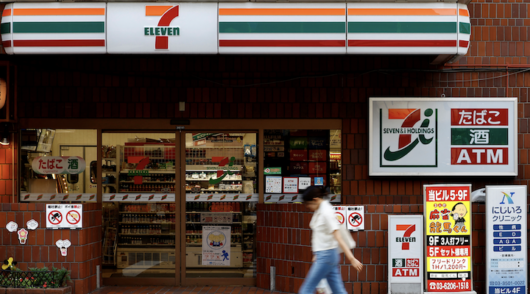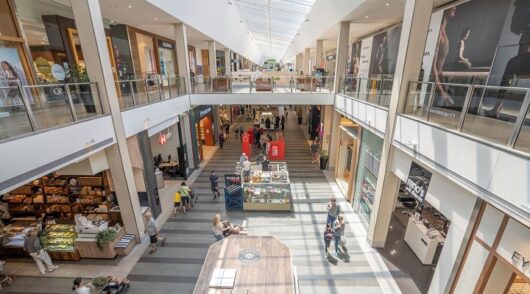Nearly 40 per cent of losses at self-checkouts come from missed scans – whether accidental or deliberate – a challenge retailers have long struggled to address without alienating honest customers.
Toshiba Global Commercial Solutions believes its AI-powered Elera Security Suite can cut those errors by more than 90 per cent, using edge camera technology, one for loss prevention and one for product recognition.
The system is designed as an end-to-end, edge-computing platform, analysing both customer and team member behaviour in real time. This enables stores to identify scanning errors, provide actionable insights to reduce shrink, and improve customer throughput – all without overhauling existing checkout hardware or software.
How the Elera Security Suite works
When a scanning error occurs, the Elera software can instantly detect whether a product has been moved from the basket to the customer’s shopping bag without its barcode being read. It can even distinguish between visually similar fresh produce – for example, identifying if a customer has keyed in a cheaper variety of apple than the one scanned.
Unlike traditional loss-prevention systems, Elera processes data within the camera itself. “The AI is learning by itself, in each individual lane, inside the cameras,” explains Roland Schmid, GM ANZ, Toshiba Global Commercial Solutions. “Whenever the retailer chooses, it can be uploaded to the cloud to combine insights from multiple lanes and improve accuracy.”
Two high-resolution edge cameras – one mounted above the checkout for loss prevention, the other beside the infrared scanner for product recognition. Each unit contains its own CPU, processor and memory, enabling them to trigger interventions without sending footage to a back-end server. This ‘on the edge’ processing means error identification is effectively instant.
Importantly, the cameras do not record identifying features of shoppers – only the scanning process – helping address privacy concerns.
A more customer-friendly intervention
One of the key differentiators of Elera is its approach to alerting customers. If an error is detected – for example, scanning an apple but selecting “orange” from the menu – the system prompts the shopper with a simple confirmation message. This gives the customer an opportunity to correct the mistake before any staff member is called over.
If issues remain unresolved at the end of a transaction, the system will summon an assistant before payment is accepted. Each incident is stored as a short, high-resolution video clip, enabling staff and customers to review the footage together – removing ambiguity and reducing the potential for disputes.
This approach, Schmid notes, can help store teams avoid difficult conversations. “When you are a store assistant, you do not want to walk up to a customer and have an argument. Our system can be configured to say, ‘Hang on – before you pay, you need to clear these items.’ It’s a far friendlier way of resolving the situation.”
Measuring the impact
The AI has been trained on millions of real-world interactions. According to Apoorv Kashyap, solution architect at Toshiba Global Commercial Solutions, this has enabled the system to achieve accuracy rates of 90 to 95 per cent.
One US supermarket chain reported notable results after deploying Elera Security Suite. By tagging organic produce with a specific sticker, the retailer enabled the AI to differentiate between conventional and organic items – leading to a 30 per cent increase in organic revenue due to reduced mis-scans.
Following Elera’s introduction, average produce transactions at self-checkouts rose from 222 to 500 per lane.
Low barriers to adoption
From a practical perspective, the Elera suite is hardware-agnostic, working with any type of point-of-sale equipment. Retailers do not need to recable, install new infrastructure, or upgrade back-end software, keeping implementation costs low.
Australian trials are set to commence later this year. Interest is growing among local grocers, particularly given the rising cost of living and the resulting temptation for some shoppers to ‘trick’ scanners.
Elera’s performance has also been recognised by industry peers, winning the RetailTech AI Innovation of the Year award from Metcash for exceeding retail technology standards.
While grocery remains the most obvious application, Toshiba sees potential for the technology across other retail sectors. In pharmacies, for instance, Elera Security Suite could verify that prescription fulfilment matches the order. One US retailer is already using the technology for cash tracking, applying the same object-recognition principles to monitor money handling and reduce discrepancies.
Balancing security and customer trust
Self-checkouts have been under increased scrutiny in recent years, with debates about whether the technology shifts too much labour onto customers or leads to higher levels of theft. Retailers, meanwhile, face the dual challenge of controlling shrinkage while maintaining a positive shopping experience.
Elera Security Suite attempts to balance these priorities. Intervening in a non-confrontational manner reduces the risk of alienating honest customers while still addressing dishonest or accidental errors in real time.
“The camera is powerful enough to determine what kind of losses are occurring,” says Kashyap.
For retailers, this can mean not only significant cost savings but also better staff morale and fewer customer disputes. In an environment where margins are tight and customer relationships matter, those benefits could be just as valuable as the recovered revenue.
- Learn more about Toshiba Global Commerce Solutions online here.







